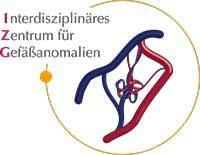Rectal Cancer — Embolization or Chemoembolization: treatment in the Best Hospitals of Germany
Treatment prices are regulated by national law of the corresponding countries, but can also include additional hospital coefficients. In order to receive the individual cost calculation, please send us the request and medical records.

Department of Interventional Radiology
The Department of Interventional Radiology offers the full range of imaging examinations, as well as innovative image-guided minimally invasive techniques for the treatment of tumors, vascular diseases and internal pathologies (for example, CT, MRI, PET-CT, SPECT). The department's doctors have deep knowledge and colossal experience in the field of interventional radiological methods of treatment, which represent an excellent alternative to open surgical interventions. Despite the high level of technical equipment and the presence of advanced computerized systems, the focus is always on the person with his individual needs. Compliance with current clinical protocols and high professionalism of the department's specialists contribute to the successful clinical practice, as well as the reputability of the department among the best medical facilities of this kind in Germany.




Department of Interventional Radiology and Neuroradiology
The Department of Interventional Radiology and Neuroradiology offers a full range of advanced imaging diagnostics and minimally invasive treatments on both an inpatient and outpatient basis. The department has state-of-the-art medical equipment for imaging tests such as X-ray, computed tomography, magnetic resonance imaging, digital subtraction angiography, and mammography. The medical facility also performs many highly effective interventional therapeutic procedures under image guidance, which in many cases allow patients to avoid traumatic open surgery. For example, the department successfully performs local fibrinolysis, thrombectomy, percutaneous transluminal angioplasty, hemostasis, transarterial chemoembolization, uterine artery embolization, and other procedures. The department's neuroradiologists specialize in brain and spinal cord imaging and the treatment of central nervous system disorders. Interventional neuroradiology focuses on the treatment of carotid artery stenosis, brain aneurysms, arteriovenous malformations, dural fistulas, subdural hematomas, brain tumors, skull base and spinal tumors, and chronic back pain. The department's medical team has extensive clinical experience in their areas of expertise. The specialists are guided by the recommendations of the German Society for Interventional Radiology and Minimally Invasive Therapy (DeGIR) and the German Society for Neuroradiology (DGNR), which helps to achieve the best results.






Department of Adult and Pediatric Diagnostic, Interventional Radiology, Neuroradiology
The Department of Adult and Pediatric Diagnostic, Interventional Radiology, Neuroradiology is one of the best institutions of its kind in Germany and offers patients the full range of radiological studies and imaging-guided minimally invasive therapy. The department’s scope of tasks also includes imaging diagnostics in children of all age groups, detection and invasive treatment of cerebral vascular pathology (neuroradiology). Patient care is provided both on an inpatient and outpatient basis.






Rectal cancer is a tumor of the distal (lower) part of the intestine. It is a more severe disease compared to tumors of other parts of the large intestine. However, the disease is successfully treated abroad with surgery, radiation therapy, and drug therapy. In cases of rectal cancer recurrence or contraindications to standard treatment, chemoembolization may be used. It is a minimally invasive endovascular procedure during which the malignant tumor is deprived of blood supply by closing the lumen of the blood vessels.
Content
- How is rectal cancer treated?
- What are embolization and chemoembolization?
- When can chemoembolization be used for rectal cancer?
- Where can I undergo treatment?
How is rectal cancer treated?
Surgery is the best treatment option and the only method that gives a chance for a complete cure of the pathology. For rectal cancer treatment in Germany, doctors may perform endoscopic resection, surgical transanal excision, laparoscopic resection, or Da Vinci treatment (robot-assisted surgery).
Whenever possible, anastomosis is applied immediately after tumor removal to restore bowel continuity with the possibility of independent defecation. However, complications during initial treatment often necessitate the use of a colostomy (an opening in the abdomen for fecal diversion). After a few months, a second operation for colostomy closure is performed.
For advanced cancers that have spread throughout the peritoneum, cytoreductive surgery (CRS) with hyperthermic intraperitoneal chemotherapy (HIPEC) may be used.
At the same time, up to 20% of cases of rectal cancer are detected at an inoperable stage. Moreover, many patients have cancer recurrence after surgery, radiation therapy, and chemotherapy. Only a few of them are considered candidates for revision surgical treatment. Doctors usually use only palliative procedures (endoscopic dilation in stenosis) and systemic therapy (chemotherapy, personalized targeted therapy, and immunotherapy).
Doctors in developed countries also use embolization and chemoembolization. These are effective methods of local tumor control. These procedures are used in patients for whom surgery and radiation therapy are contraindicated.
What are embolization and chemoembolization?
Embolization is a minimally invasive procedure to close the lumen of the arteries that supply blood to the tumor. It is performed to shrink the size of the tumor and eliminate rectal bleeding. The mechanism of antitumor effects is based on depriving the tumor of blood supply because cancer cells die from lack of oxygen.
Regional chemotherapy may enhance the effect of embolization. In such a variant, this procedure is called chemoembolization.
The treatment is performed using a minimally invasive method. Under local anesthesia, doctors make an incision in the groin, insert a catheter, and guide it to the tumor blood vessels. They use a contrast agent to see which arteries are supplying blood to the tumor. These blood vessels are closed with emboli. The blood flow is then checked again. If all the arteries are closed properly, the procedure is complete. If there is still blood flow, the embolization is repeated with larger particles.
Chemoembolization is performed using different methods. This may involve the separate administration of embolisate and chemotherapy drugs, but drugs may also be contained in drug-saturated microspheres.
Conventional transarterial chemoembolization is abbreviated as TACE. Doctors also use various embolization options involving microspheres, tiny balls saturated with chemotherapy drugs. Some of them subsequently dissolve, while others remain in the blood vessels permanently, causing irreversible embolization. Some microspheres are initially saturated with drugs, while others are saturated at the hospital just before the procedure. Depending on the type of microspheres used and the drugs they contain, the TACE procedure may have different names. For example:
- DSM-TACE (degradable starch microspheres)
- DEBIRI-TACE (irinotecan-saturated microspheres, a common chemotherapy drug for treating bowel cancer)
- DEB-TACE (doxorubicin-saturated microspheres)
Some studies show that the use of microspheres is a more effective treatment method for colorectal cancer than conventional chemoembolization, increasing the objective response and survival rates of patients. In addition, the use of microspheres improves the tolerability of the procedure and the rehabilitation period compared to classical chemoembolization.
When can chemoembolization be used for rectal cancer?
In cases of rectal cancer, embolization can be used for:
- Rectal blood vessels
- Liver blood vessels, where metastases of rectal cancer often occur
Chemoembolization is more often performed as part of metastasis-directed therapy. The procedure to close the branches of the hepatic artery has been used in medicine for ten years. It is very successful due to the peculiarities of the blood supply to the liver, as healthy tissue receives nutrition from the portal vein and metastases from the hepatic artery.
Liver metastases may appear synchronously with the primary tumor and be detected during the primary diagnosis. In such cases, chemoembolization can be combined with surgical treatment when the rectal tumor is removed and liver metastases are controlled through an endovascular procedure.
Liver metastases may also be detected later, as a rectal cancer recurrence, after the removal of a fragment of the rectum. In such cases, chemoembolization can be used as the main or only treatment method, especially in conditions where liver resection is impossible or contraindicated.
Rectal arterial chemoembolization is less common. It is mainly used to stop bleeding. Less commonly, rectal cancer chemoembolization in Germany is performed for tumor control, but it is not yet considered a standard procedure, so it is used as part of clinical trials. Some of these trials show promising results.
One of the studies showed that chemoembolization with microspheres for inoperable patients or patients with recurrent rectal cancer resulted in at least stabilization of the disease and an arrest of tumor growth. In a third of cases, the size of the tumor shrinks to the point where it becomes resectable (can be removed surgically). Although there was no control group in this study, according to the literature, the median survival rate of such severe patients is 6 months. Therefore, the authors considered the treatment results to be outstanding.
In addition to affecting tumor size and survival rate, the chemoembolization also improves quality of life. It alleviates pain, reduces hemorrhage, and decreases the risk of bowel obstruction and defecation disorders. Patients are less likely to suffer from anemia and lose less weight. General symptoms such as weakness, nausea, depression, anxiety, drowsiness, poor appetite, malaise, and shortness of breath are also alleviated.
Where can I undergo treatment?
You can undergo your diagnostics and treatment in Germany. Advanced German clinics successfully perform chemoembolization of both hepatic and rectal arteries.
You can make your treatment appointment on the Booking Health website. This is a convenient service for selecting clinics. On our website, you can find the leading medical centers specializing in chemoembolization for rectal cancer and the current prices. The cost of CRS and hyperthermic intraperitoneal chemotherapy (HIPEC) for rectal cancer is between 52,120 EUR and 91,970 EUR.
When using the Booking Health service, your treatment costs will be lower due to the absence of additional fees for foreign patients. Our company's specialists will help you select the most suitable hospital and arrange your trip.
Authors:
The article was edited by medical experts, board-certified doctors Dr. Nadezhda Ivanisova and Dr. Vadim Zhiliuk. For the treatment of the conditions referred to in the article, you must consult a doctor; the information in the article is not intended for self-medication!
Sources:

